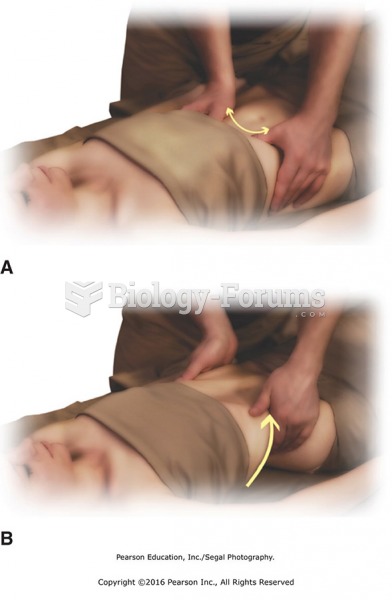|
|
|
Approximately one in three babies in the United States is now delivered by cesarean section. The number of cesarean sections in the United States has risen 46% since 1996.
Patients who have undergone chemotherapy for the treatment of cancer often complain of a lack of mental focus; memory loss; and a general diminution in abilities such as multitasking, attention span, and general mental agility.
The effects of organophosphate poisoning are referred to by using the abbreviations “SLUD” or “SLUDGE,” It stands for: salivation, lacrimation, urination, defecation, GI upset, and emesis.
More than 34,000 trademarked medication names and more than 10,000 generic medication names are in use in the United States.
The U.S. Pharmacopeia Medication Errors Reporting Program states that approximately 50% of all medication errors involve insulin.
 At breakfast, a middle-class husband sits absorbed in the newspaper and the public affairs of the da
At breakfast, a middle-class husband sits absorbed in the newspaper and the public affairs of the da
 (A) Thumb slide along diaphragm, and lift around the waist. Place thumbs just under the rib cage, ...
(A) Thumb slide along diaphragm, and lift around the waist. Place thumbs just under the rib cage, ...
 Instruct recipient on giving you feedback immediately if heat becomes too intense. Remind the person ...
Instruct recipient on giving you feedback immediately if heat becomes too intense. Remind the person ...




